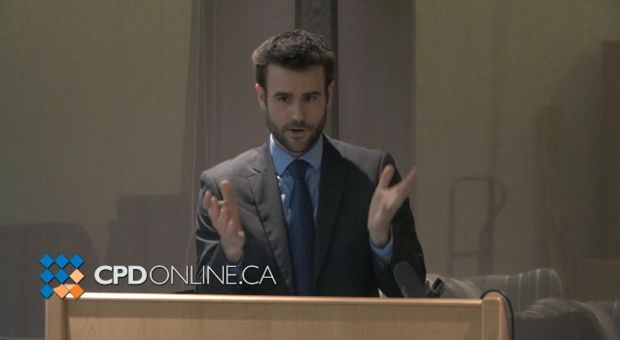
To purchase this video please click “Add to Cart”.
Login to watch this video if you have a subscription. Learn more about subscriptions.Tax issues are what keep the sole and small firm lawyer up at night. Issues that have crossover application into different areas are the most challenging. This program will address tax topics that commonly intersect in family, estates, real estate, and employment law.
Mark practices as a sole practitioner exclusively in family law. He began his career at a large, national law firm where he worked primarily on family law matters. He subsequently joined a boutique family law firm in downtown Toronto where he gained extensive experience in both simple and complex family law cases. This experience ranged from amicable separation agreements to high-conflict divorces, which required hearings at all levels of court in Ontario, including the Ontario Court of Justice, Ontario Superior Court of Justice, and the Court of Appeal for Ontario.
Kara is a civil litigator with Rapley & Company and is experienced in the trial, defence and prosecution of medical malpractice, professional negligence, motor vehicle, personal injury, occupier’s liability, breach of contract and product liability claims. She has appeared at every level of Ontario Court, in a number of administrative tribunals, and in hundreds of mediations.
Kara earned a Bachelor of Science (Hons.) in psychology at the University of Toronto and worked as a social worker for several years before attending Osgoode Hall Law School and obtaining her Bachelor of Laws in 2008. While at law school Kara worked as a research assistant and for Legal Aid Ontario and has previously worked at the Ministry of Finance as a senior tax advisory specialist prior to Rapley & Company.

Tannis was called to the bar in 2003 and practices in the areas of real estate, corporate/commercial, and estate planning. In 2018, she was certified as a specialist in real estate by the Law Society of Ontario.
As a former Trustee for the Toronto Lawyers Association, Tannis has been involved in advocacy and education initiatives, most notably the moderator and presenter of continuing education programmes and writer of articles for the TLA journal. She currently sits on the education committee which is responsible for producing CPD programmes for Toronto lawyers.
She is also a member of the Condominium Sub-documents Committee of the Working Group on Lawyers and Real Estate which is responsible for producing province-wide precedent materials for condominium transactions.
Tannis is a frequent presenter for continuing legal education programmes and, in the past, has spoken on the issue of real estate, estates and ethics for the Canadian Bar Association,/Ontario Bar Association, Law Society of Upper Canada, The Commons Institute and the Toronto Lawyers Association.